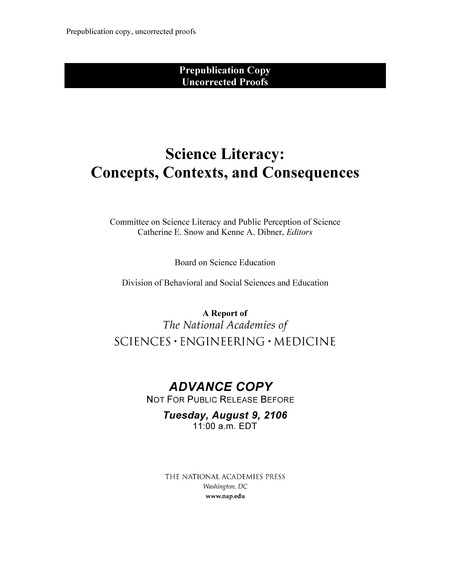New National Academies Report on Science Literacy & Support for Science
This post is adapted from a National Academies of Science, Engineering, and Medicine press release.
 According to a new report from the National Academies of Sciences, Engineering, and Medicine, US adults perform comparably to adults in other economically developed countries on most measures of science knowledge and support science in general. However, attitudes toward some specific issues, such as climate change or genetic engineering, may be shaped by factors such as values and beliefs rather than knowledge of the science alone. Despite popular assumptions, research shows that increasing science literacy will not lead to appreciably greater support for science.
According to a new report from the National Academies of Sciences, Engineering, and Medicine, US adults perform comparably to adults in other economically developed countries on most measures of science knowledge and support science in general. However, attitudes toward some specific issues, such as climate change or genetic engineering, may be shaped by factors such as values and beliefs rather than knowledge of the science alone. Despite popular assumptions, research shows that increasing science literacy will not lead to appreciably greater support for science.
The committee that conducted the study and wrote the report said that science knowledge is only one component of science literacy, which also encompasses understanding scientific practices, such as forming and testing hypotheses, and understanding science as a social process, such as the role of peer review.
Committee chair Catherine Snow states that "Historically, assessments of science literacy have focused on individuals, but we see now that communities can engage in science and produce scientific knowledge in a way that transcends any individual’s ability." Communities can now come together and leverage the diversity of knowledge and skills as a group to achieve goals, such as a community working with local scientists to detect and address environmental hazards.
The report presents a research agenda with questions about creating new measures of science literacy and expanding the information available to clarify various aspects of science literacy and it's role in society.
Both the full report and an overview are now available.

